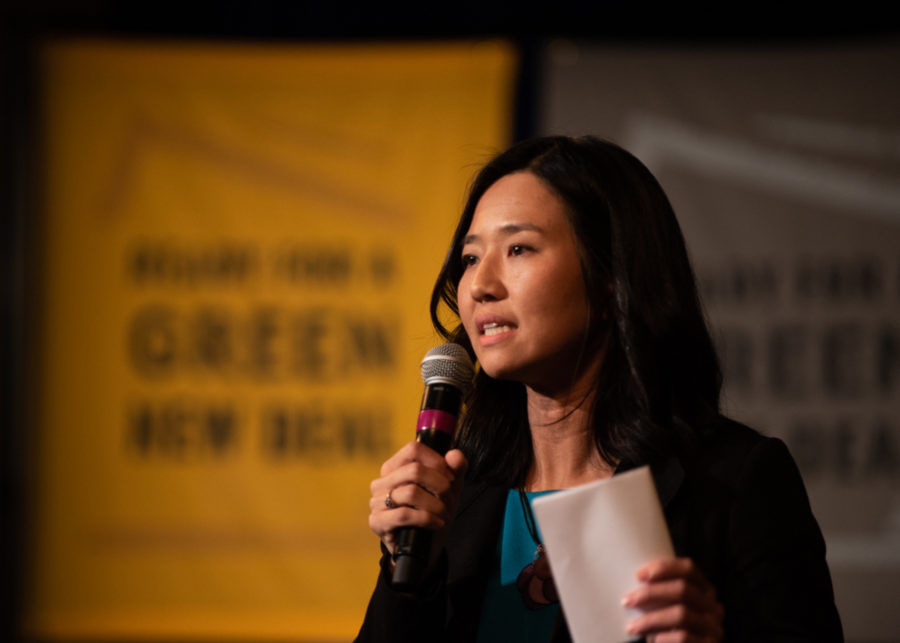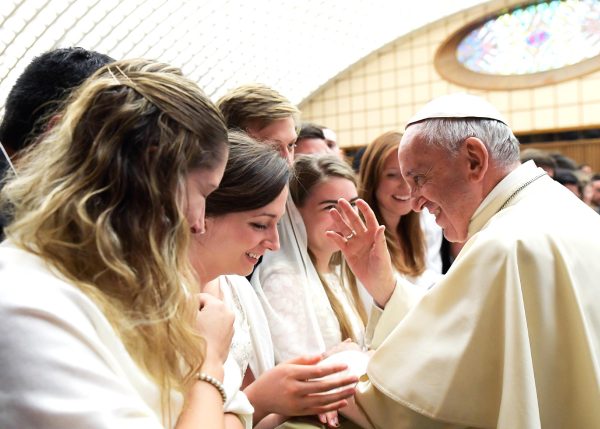Michelle Wu’s Green New Deal Is Exactly What We Need
The Green New Deal (GND) was first proposed by United States Representative Alexandria Ocasio-Cortez (D-NY) and Massachusetts Senator Edward Markey (D-MA) with the goal of reworking the American economy to cut carbon emissions across the country by reaching a carbon-neutral economy and a hundred-percent renewable fuel by 2050.
Boston City Councilor At-Large Michelle Wu has created a version of the federal bill designed specifically for the city — one that fights the crucial battle against climate change with more vigor.
One of the biggest differences between the Boston GND and the federal GND is its goal of reaching carbon-neutrality citywide by 2040, instead of the nationwide target of 2050.
Wu explains, “We know the science says that if we want to stay within the range of what will keep the planet livable, getting to carbon neutrality by 2050 only gives us a 50/50 chance of doing that as a society. And so, cities that can do more, need to do more.”
But climate change is a particularly troubling adversary for Boston.
As a coastal city, Boston is especially vulnerable to rising sea levels and more extreme weather due to climate change. The city is also highly gentrified, with many racial and economic inequalities; by allocating funds to combat climate change and deeply rooted systemic inequalities, the bill is a necessary step to prioritizing the long-term growth of the city and its residents.
According to Wu’s Planning for a Boston Green New Deal & Just Recovery, as extreme weather and rising sea levels become more apparent, housing costs will increase further away from the coast and decrease near the waters, therefore making low-income Boston residents and people of color (POC) even more susceptible to the effects of climate change.
Wu’s strategy to fight these necessary battles is well-thought-out. The first step of the Boston GND is to increase public transportation access through the Massachusetts Bay Transportation Authority (MBTA). One of Wu’s greatest goals in her mayoral campaign is to reduce the price of public transportation. This incentive will make public transportation a more popular option than private transportation, naturally decreasing the overall carbon emissions of the city.
People who take the MBTA are disproportionately low-income and POC; often, the MBTA is their only source of transportation to and from work. Putting more funds into the MBTA will help combat the racial and economic inequalities within the city by giving easier access to transportation to those who most need it.
Boston Latin School student Nabeli Peña (IV) explains, “My mom […] takes the MBTA everyday, twice a day or more, to get to work and run errands. In a year, she spends over [a thousand dollars] on the MBTA, so reducing the cost or making it even free would definitely help financially.”
Because of this benefit, Bostonians and students at BLS should support this bill as a step toward a more equitable system through affordable transportation for all. This policy is vital to weakening the systemic racism and racial wealth gap prevalent across the city.
The Boston GND also plans to establish a green workforce to provide more jobs geared towards the production of renewable energy in collaboration with labor and workers’ centers. The unemployment crisis is a major problem throughout the United States, with POC making up the majority of the unemployed in Boston. Compounded with affordable transportation, the GND would create new economic opportunities for those who most need them.
Although critics say that the Boston GND is too expensive, with the federal GND reaching close to 93 trillion dollars to implement, it is a worthy investment. Climate change will soon become irreversible, and by investing in solutions now, cities will save a lot more in the long run.
Stacy Ugwudike (IV) concludes, “I’m honestly all for the [Boston] Green New Deal. Climate change is just getting worse as time progresses and this [bill] is one step towards slowly reversing years of fossil fuels on our beautiful planet.”







